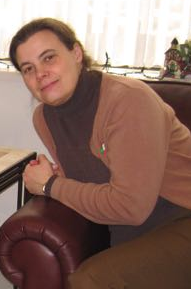
Written by guest blogger Kathryn Simonsen.
The Ivory Tower doesn’t exist. Forget what anyone says. All scholarship is a collaborative effort. No one has ever achieved anything alone. We all depend on the insights of our predecessors and our colleagues for whatever we do. This is true for every single step along the way from initial concept to final publication. Peer review is part of this process and it matters. A lot.
At its best peer-review is a mechanism for sharing knowledge and expertise at the highest level of scholarship. No one knows everything. Even the most diligent of researchers misses things or doesn’t think to consider something. A good reviewer backstops fellow scholars. What is missing? What is weak? What is unclear? What doesn’t need to be there? What is unsupported? We all know that when we have spent months or years on a project we no longer see the argument clearly – we read into it what we know should be there and can’t see that it isn’t. As an editor I am often in awe of the generosity of reviewers, of the amount of time, thought and consideration they have given to a fellow scholar, whom, because of blind reviewing procedures, they cannot (or should not) know. These are the true scholars among us because they, through their generosity and greatness of spirit, make the scholarship of others possible and make it better.
The value of blind review is also considerable. Arguments can be made against it; it can provide some with a platform for ranting when ranting is not appropriate. It also allows the lazy to be lazy without much repercussion. But from the point of view of the scholar submitting work for assessment and an editor seeking a fair decision, it is our best tool against biases. If we don’t know who the author is, we can’t take the author’s identity into consideration; we are not influenced by the reputation of an established scholar; we do not allow perceived gender or nationality to sway us. The reviewer deals with the argument and the scholarship on its own merits (ideally).
So, in order to celebrate peer-review week, make a mental note. Next time an editor asks, say “yes.” Say yes to collaboration and generosity. Without them the entire peer-review system falls apart. If we don’t say yes, who will? By helping others and leading by example, we help ourselves. We all need peer-reviewers.

Kathryn Simonsen completed an undergraduate degree in Classics at the University of British Columbia and then pursued graduate degrees at the University of Toronto. Since 2003 she has taught in the Classics Department at the Memorial University of Newfoundland. In 2010 she became review editor of Mouseion and co-editor in 2015.
Comments on this entry are closed.